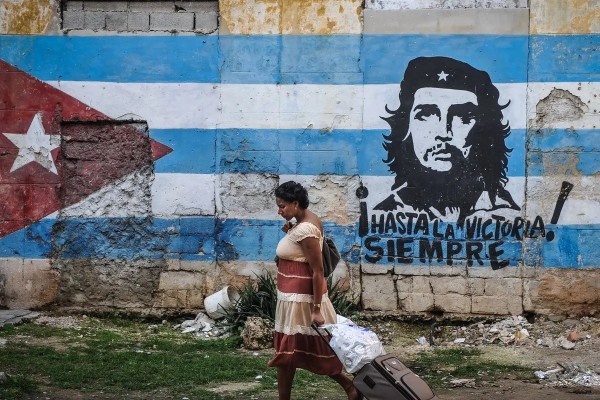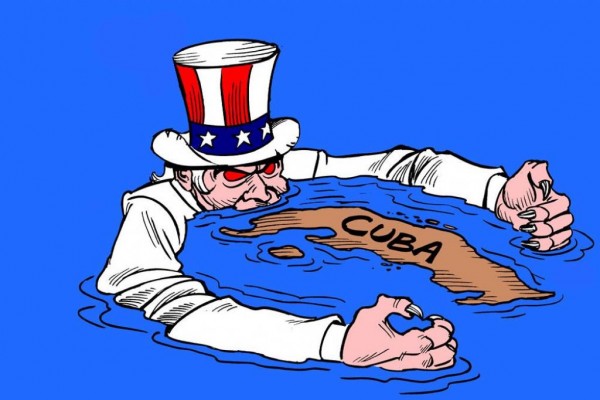Global community condemns US blockade of Cuba for 30th time
What the world has to say is clear: the blockade is cruel, regressive, and pointless, and it should be lifted immediately

Photo by Steward Cutler/Flickr
On November 3, the United Nations General Assembly (UNGA) voted overwhelmingly to condemn the US government’s economic, commercial, and financial blockade of Cuba. Of the 189 member states present at the vote, 185 called for the blockade’s immediate lifting, equal to 98 percent of the General Assembly. Two countries abstained: Brazil and Ukraine. Two voted against the resolution: the United States and Israel.
Following the vote, Medea Benjamin of CodePink said: “The Biden administration talks about the need for a rules-based international order. Today’s UN vote clearly shows that the global community is calling on the US to lift its brutal embargo on Cuba.”
Indeed, the world has spoken, as it did at the previous 29 UNGA votes to condemn the US blockade of Cuba. What the world has to say is clear: the blockade is cruel, regressive, and pointless, and it should be lifted immediately.
— Bruno Rodríguez P (@BrunoRguezP) November 3, 2022
The international community eloquently confirms, once again, the almost unanimous call for an end to the blockade and the isolation the US suffers due to a cruel policy that violates International Law.#MejorSinBloqueo pic.twitter.com/3JB65LFANA
With this most recent vote, only four countries openly support the blockade or refuse to condemn it. This means that the US blockade of Cuba is more widely denounced than the Russian annexation of Ukraine’s eastern provinces, which 78 percent of present member states voted to condemn at a UNGA vote this October.
Nevertheless, the blockade remains in place, impacting every aspect of life in Cuba, from medical care to education to caloric intake.
Recently, a number of important regional organizations have called on the Biden administration to end the US government’s 60-year blockade of Cuba. On October 27, the 32 member states of the Community of Latin American and Caribbean States (CELAC) demanded “the elimination of all threats, aggressions, and unilateral coercive measures that are contrary to international law,” including the blockade. CELAC also called on Washington to remove Cuba from the US state sponsors of terrorism list (the Trump administration added Cuba in January 2021 and Biden has not expressed any interest in reversing Trump’s move).
Last July, the 15-nation Caribbean Community (CARICOM) also made the Biden administration aware of its disapproval for US aggression against Cuba. In a letter to Biden, CARICOM declared that “Cuba and its people [are] a valuable and respected member of our family of Caribbean nations” and that the country’s supply shortages are caused by “the long-standing US trade embargo and the more recent punitive measures imposed by the previous US administrations.” The letter ended with the assertion that the blockade “has runs its course. CARICOM sincerely believes that it should be lifted so that all the rights to which the Cuban state and its people are entitled can be respected and upheld.”
At the latest UNGA vote against the blockade, the permanent representative of Saint Kitts and Nevis, Nerys Dockery, addressed Biden directly:
So again, Mr. President, I ask the question: what justifies Cuba, a small Caribbean nation which has had such a disproportionately positive impact on the global fight against the COVID-19 pandemic and whose internationalism and humanitarianism has saved, impacted, and empowered so many human lives…continuing to be burdened and limited by an outdated embargo?
The answer is this: it cannot be justified, and only a handful of governments still pretend that it can be.
Owen Schalk is a writer based in Winnipeg. He is primarily interested in applying theories of imperialism, neocolonialism, and underdevelopment to global capitalism and Canada’s role therein. Visit his website at www.owenschalk.com.










